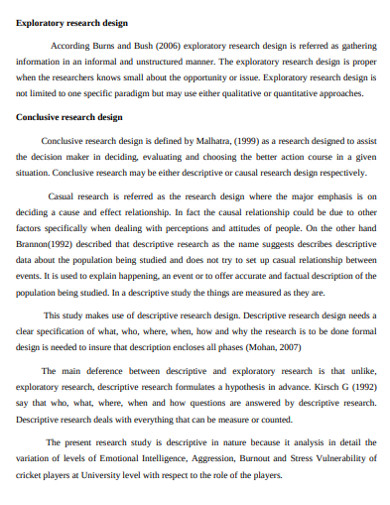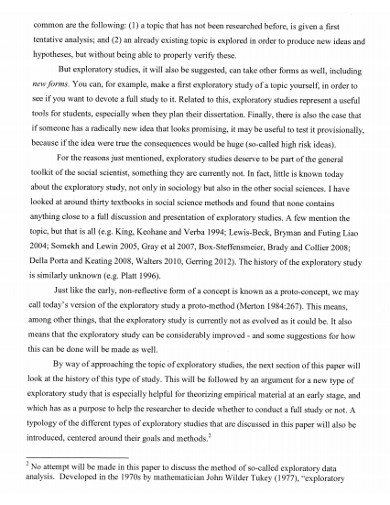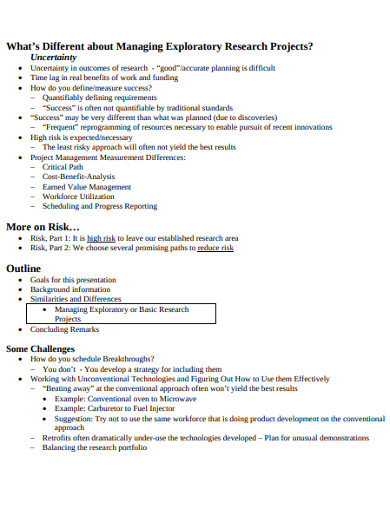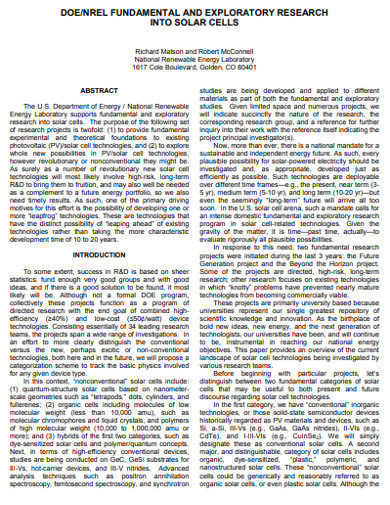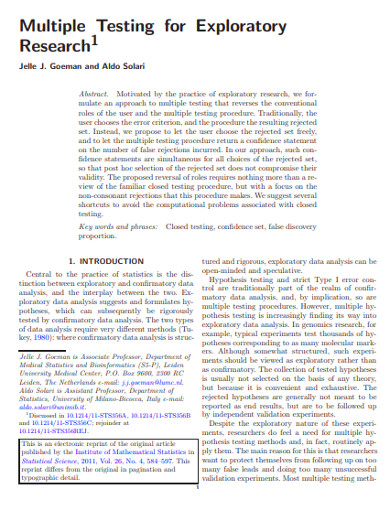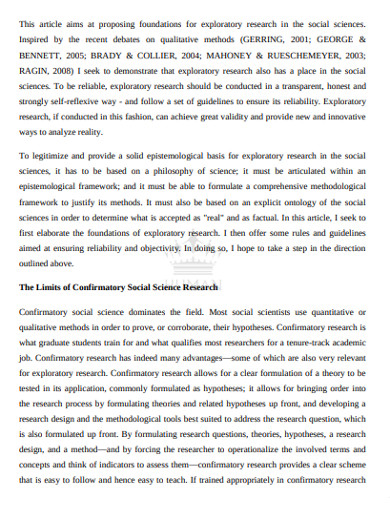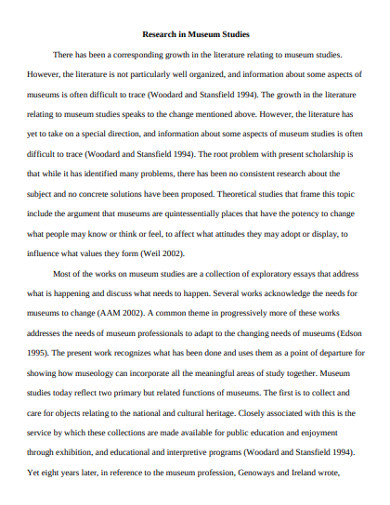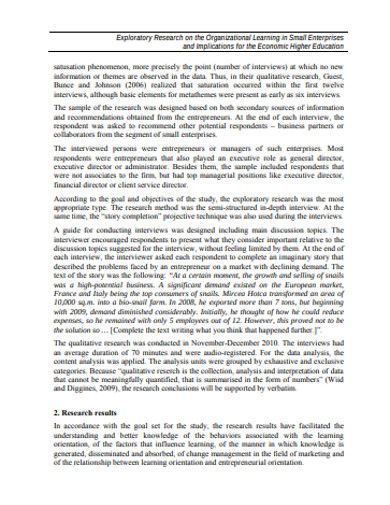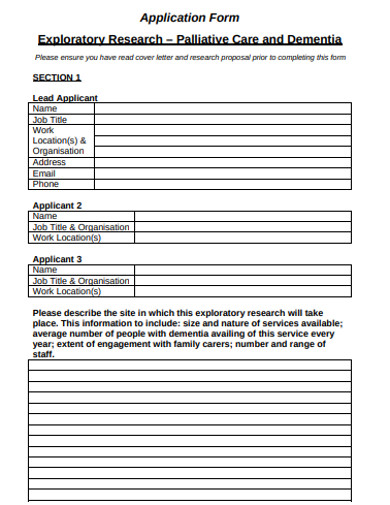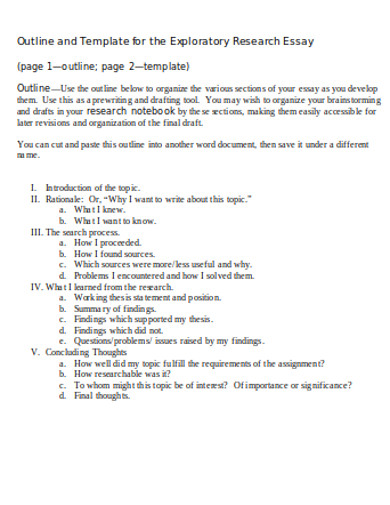Exploratory Research
Obscurity can eat up a person’s mind; the lack of clarity can be maddening to those who have a working brain. When one can’t think straight or form a coherent thought, they start to feel as though they’ve lost touch with reality. To battle this phenomenon, people find a focus so that they can build something out of a little fact. When things become too vague, the best thing would be to conduct some sort of case analysis. It would help if you searched for something that can give you a clue to where the problem leads, how the complication unfolds, and what other factors can lead to the issue. To fix things, like this, you might need to conduct exploratory research.
Before you can conduct exploratory research, you first need to understand what it is. Exploratory research defines itself as the process of investigating an unclear and improperly set problem. This research methodology is a way to recognize an existing problem. This study is useful when the problem is at its early phase. It can give slight clarifications but will not provide conclusive results. Researchers use this study to lock on specific issues. Since this is exploratory, researchers are required to be flexible and able to divert the path of the research based on the new data gathered from this research.
Help and Handicap
Exploratory research is a critical research framework applicable to any research project. This is because it lets the researcher find a clear path to solve a given problem. It enables the researcher to explore his ideas to help him find suitable ways to formulate and answer research questions. This builds a firm understanding of the subject without impulsively making conclusions. This type of research still does come with its own set of advantages and disadvantages, though.
Advantages
One thing that makes this research favorable is that it lets the researcher adapt to any changes in the data gathered. It’s easy for researchers to be flexible with this study. It also provides a reliable insight into a phenomenon that is worth all the time, effort, or cost spent. The most significant advantage is that it can lead to other possibilities. Whether that is finding new details to solve the problem or further exploratory data analysis.
Disadvantage
The biggest downside to exploratory research is that it can turn into qualitative research. The data of which can be interpreted with bias. This research also provides inconclusive data, which can still lead to an unclear study. This research design usually makes use of a small sample that cannot accurately describe the whole demographic. Also, when using secondary research to collect data for this study, the information might not be up to date and can render itself useless.
10+ Exploratory Research Examples
If you are looking for answers to what, why, and how questions regarding a particular issue, you might need to conduct exploratory research. This research stirs the curiosity of the researcher and dives him to look for ways to solve a problem. If you need more information about this research action plan, here are 10+ exploratory research examples you can look into.
1. Exploratory Research Workshops Example
2. Exploratory Research Design Example
3. Exploratory Studies Social Science Research Example
4. Exploratory Research Project Example
5. Fundamental and Exploratory Research Example
6. Multiple Testing for Exploratory Researh Example
7. Exploratory Social Science Research Example
8. Exploratory Museum Studies Research Example
9. Exploratory Small Enterprises Research Example
10. Exploratory Research Application Form Example
11. Exploratory Research Essay Template
Wonderful Ways
Exploratory research is a very versatile research design. It can help you find faults in your case study or even your marketing strategies. This research can lead to further investigations like qualitative and descriptive research. But researching something would be really difficult if you have nowhere to start. There are many methods to accomplish this type of research; here are some of them.
1. Focus Group
A standard method in exploratory research is the use of focus groups. Having this in your research plan is strongly advised. This method selects 8-12 participants to answer questions and give insight into the topic studied. This strategy requires the participants to have similar backgrounds and experiences for the research results to be valid. This method provides useful information about the problem.
2. Polls / Survey
When collecting data regarding trends and opinions, the best methods for that are polls, survey questions, and questionnaires. The digital age has even helped in the advancement of this method through online surveys. That said, this method is considerably low cost. Researchers can also use this method to collect data from experts and specialists that know their way around the field and topic.
3. Interview
When gathering information, nothing beats in-person interviews. This way, you get to interact with your target market and research participants on a personal level. You get to gather information straight from the source. You can be sure that the facts you use for data analysis are reliable and valid. Interviewing experts can also provide you something not everyone can come across.
4. Secondary research
Exploratory research can also make use of secondary research. Documentary research can be a form of this method. By checking out previously conducted research, journals, and news articles, you can be sure that the data has been proven correct.
There is a quote that goes, “curiosity killed the cat.” What most people don’t know is that it is followed by, “but satisfaction brought it back.” This means that new things may be risky and dangerous, but when you get to prove something, you can get the satisfaction you deserve




